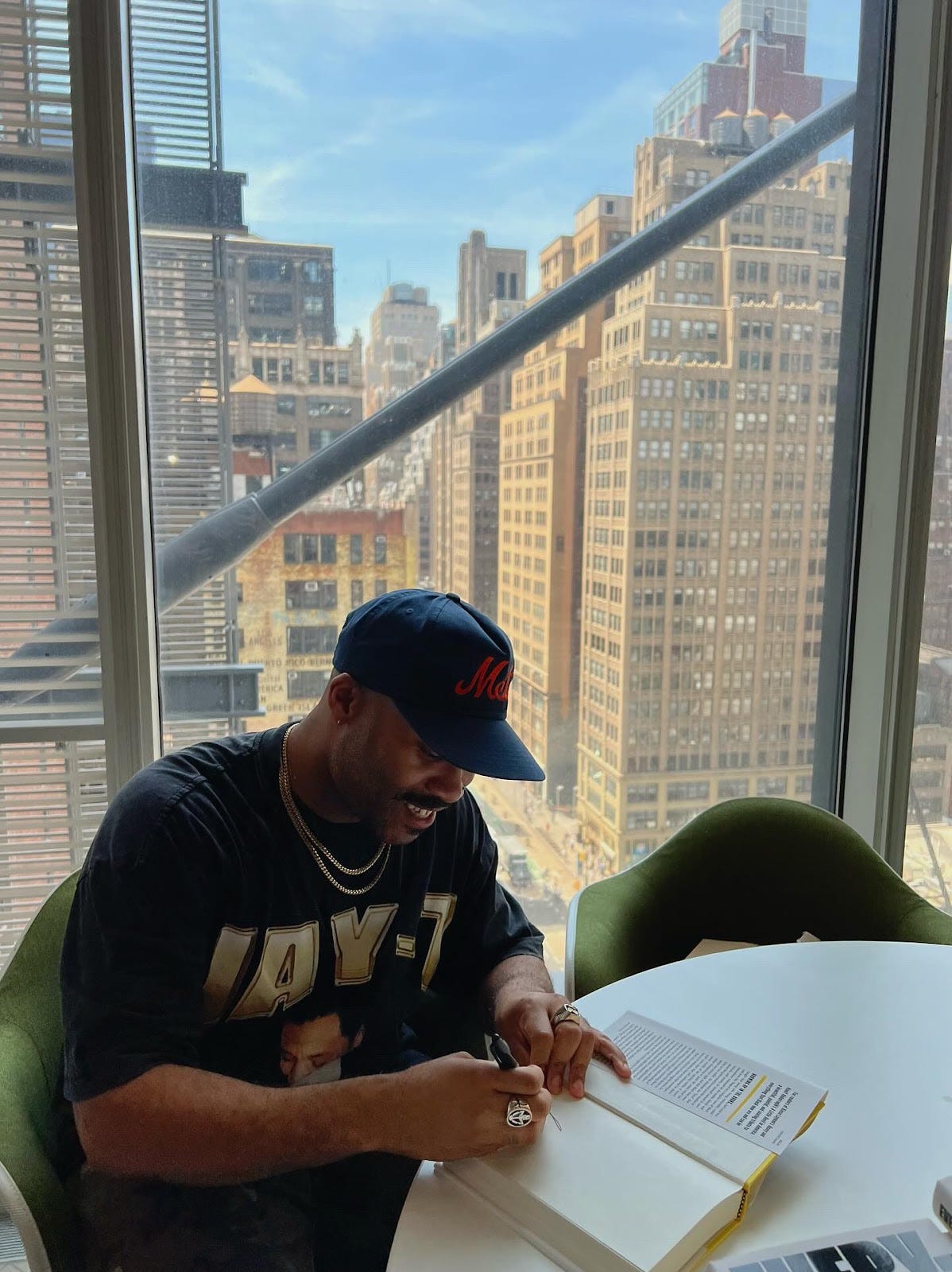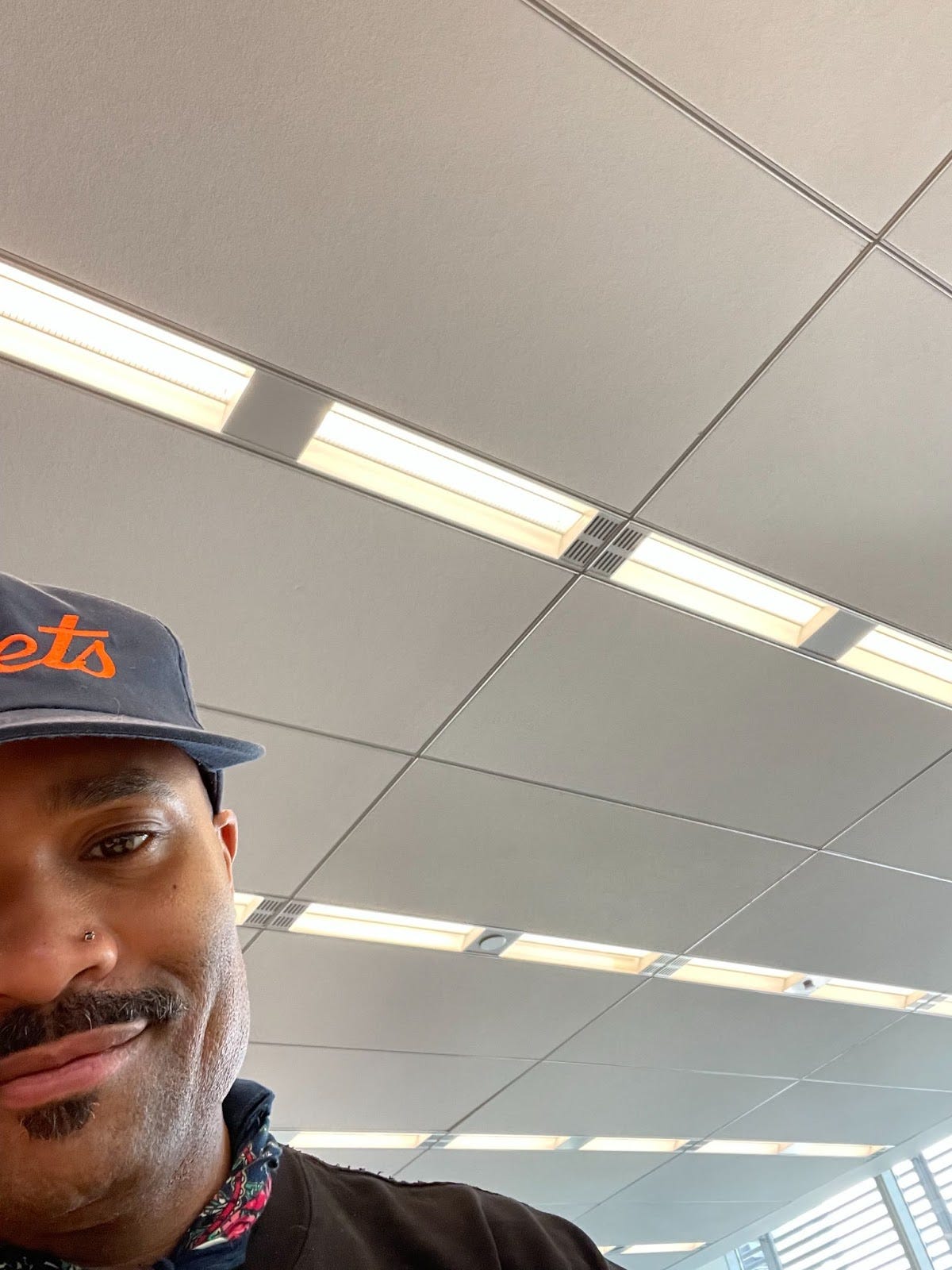When I Tell You I Sucked at Love...
Instead of cheating, I tried the thing society hates.
The ultimatum I had to sit with was “therapy, or else.” The “or else” on the other end of the statement was a silent provocation that would hang in the air, ringing in my ears for the next year or so while I explored the roots of why the ultimatum was offered in the first place: I had cheated. Twice. With the same woman.
Looking back now at what feels like the ripe age of 41, the 25-year-old me was incredibly ill-equipped to navigate what it meant to be in love. Actually, not just to be in love, but to understand and take on the responsibility of love — the kind of responsibility that requires you to switch flights at a moment’s notice, to adjust the microwave clock after daylight savings because only you know what they don’t know about time and love and how easy it can all change, like as soon as you forget the cheesecake or recycle day or alternate side parking or that yellow is their favorite color. It is the kind of responsibility that cuddles itself to sleep at your doorstep when you’ve fallen for a person who asks more of you than you can change about yourself. It is the capacity needed for last-minute tampon runs, the sunny Central Park argument right before the argument ahead of the radio show, or the argument about the email right before the performance in Brooklyn.
What 25-year-old me couldn’t see, 41-year-old me sees clearly: Cheating was an easier language for me to speak than the truth. I cheated because I was irresponsible, unresponsive and emotionally stagnant, and I had no idea how to express what I had struggled with since the earliest days of my life. I cheated because I didn’t know how to tell the woman I loved that I believed I could enjoy someone other than her, while still being present for the love she needed and wanted from me. The commitment to love and a lover was not the thing that scared me. My ability to believe I could be committed to more than one person did.
In kindergarten, I memorized New Kids on the Block songs and sang them to the girls in my class. By 2nd grade, I was writing love poems and raps for friends to give to girls, while I stared off in the distance at girls named Mia and Samantha, a sucker for unrequited love. Maybe there was always a deeper, more expansive version of love that I knew to be true for myself.
The heteronormative, monogamous experience we are almost all raised in would argue that there’s “the one” — a one-of-a-kind, Halley’s Comet exceptional love that moves mountain and meteor to get you closer to the vows, big house, babies, beautiful dog, country club, and backyard barbecues with sparklers. The language of romance is first taught to us through TV screens and rom-com movies, training our eyes and hearts to believe in a love that is solely dependent on you and your partner, the grandeur of the one and only soulmate finding each other in a poetry coffee house, or a record store, or a train heading to Paris, or via accidental late night online chat room conversations. The music we listen to is no different. Song upon song of unrequited love, the longing and desperation of losing your true love; the pang of separation, and the remorse of missing out on the only love you’ll ever have.
For too long, our idea of love has been shaped by what we are told to consume: by our parents and the parents before them, by our Instagram screens and reality shows, and best friend’s weddings. After failing repeatedly to live up to that fantasy, I realized that love for me, a successful love for me, was nurturing and malleable, and fluid. It’s the kind of love that led me to find my life partner, who I cohabitate and co-parent with; a partner who has a boyfriend and additional lovers, while I have a girlfriend and other lovers as well, with room for multiple partners if and when it makes sense.
It took therapy for me to understand how I loved, what I needed and required, and how I could best communicate that to potential partners. It was reading books on mindfulness and gratitude, reading literature on non-monogamous structures and relationship anarchy, and feeling the tingle in my heart that let me know what language to use. It’s what led me to polyamory and to understanding the spectrums of sexuality. Polyamory also connected the dots for me politically, helping me see how a need for community and my desire to end imprisonment of all kinds made me want to break all binaries, from the government to romance. Learning about non-monogamy as a realistic way of living would have saved me a lot of misery and, more importantly, would have saved potential lovers and partners a lot of heartache and grief.
Monogamy as a concept is beautiful and works for many, but not all people. I make mistakes, because I am still a flawed, growing, and ever-changing human. But monogamy is dead. At least for me. Because I found what works for me. So, until further notice, poly is the path I’ll keep choosing to follow.
To be honest, I still suck at love. Heck, we all do. But I suck way less. And I’m way happier, too.
Does that sound wild to you? Or maybe ideal? Hit me up and give me your questions for my advice column. I’ll cover relationships, love, friendship, sex, whatever you’ve got going on.
Joél Leon, aka Joél L. Daniels, is a Bronx-born girl dad, author, poet, performer and cultural critic who writes and tells stories for Black people. He is a Creative Director at The New York Times' T Brand Studios, and his work has been featured in The New York Times, ABC News, TED, EBONY, Forbes and others. He is the author of “Things I will Tell My Daughter,” “God Wears Durags, Too” and “Everything and Nothing At Once: A Black Man’s Reimagined Soundtrack For the Future.”







Social norms are such a huge source of suffering. People "accept" cheating in a way, where a great many just knee-jerk won't even consider polyamory, even though it is healthy and right for many people, but it isn't "allowed" to be presented as an option of how to be, and then people end up cheating and hurting others without even knowing why because even the idea of considering polyamory is so culturally prohibited - people who might be so inclined may not even be able to admit to themselves that this could be their natural inclination. And binary thinking in general is so limiting. Our Rep vs Dem political system limits thinking in a such a big way, and we see how that works out... I love how mindfulness forces fluidity and disconnects us from our conditioning. All this to say, as a neurodivergent who spent most of my life confused about why I was weird and who wasted a lot of time and energy trying to seem normal, I appreciate your POV and look forward to reading more!